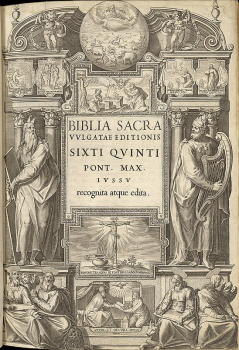What Greek variants are you talking about?
The Greek text is identical in both the critical texts (marked in red) and the traditional texts (marked in blue)
Nestle Greek New Testament 1904
ἰδοὺ μυστήριον ὑμῖν λέγω· πάντες οὐ κοιμηθησόμεθα, πάντες δὲ ἀλλαγησόμεθα,
Westcott and Hort 1881
ἰδοὺ μυστήριον ὑμῖν λέγω· πάντες οὐ κοιμηθησόμεθα πάντες δὲ ἀλλαγησόμεθα,
Westcott and Hort / [NA27 variants]
ἰδοὺ μυστήριον ὑμῖν λέγω· πάντες οὐ κοιμηθησόμεθα πάντες δὲ ἀλλαγησόμεθα,
RP Byzantine Majority Text 2005
Ἰδού, μυστήριον ὑμῖν λέγω· πάντες μὲν οὐ κοιμηθησόμεθα, πάντες δὲ ἀλλαγησόμεθα,
Greek Orthodox Church 1904
ἰδοὺ μυστήριον ὑμῖν λέγω· πάντες μὲν οὐ κοιμηθησόμεθα, πάντες δὲ ἀλλαγησόμεθα,
Scrivener's Textus Receptus 1894
ἰδοὺ, μυστήριον ὑμῖν λέγω· Πάντες μὲν οὐ κοιμηθησόμεθα, πάντες δὲ ἀλλαγησόμεθα,
LITERALLY: Behold a mystery to you I tell. All not we will sleep. All however, we will be changed.
KJB:
Behold, I shew you a mystery; We shall not all sleep, but we shall all be changed.
So what does "we shall all be changed" mean? It simply means that all believers who are alive at the Resurrection/Rapture will be (a) transformed, (b) perfected, and (c) glorified. All those in Christ who are resurrected at that time will receive immortal glorified bodies, and the ones who are raptured will be transformed and also receive glorified immortal bodies. See 1 John 3:1-3 and other passages regarding the Resurrection/Rapture (one event but the resurrected saints will precede the raptured saints momentarily).
Those are
not Manuscripts but
printed text.
There is a difference.
These are the variants:
The manuscripts are grouped into four basic readings here:
(1) א C 0243* 33 1739 have “we all will sleep, but we will not all be changed” (πάντες κοιμηθησόμεθα, οὐ πάντες δὲ ἀλλαγησόμεθα);
(2) Ì46 Ac (F G) have “we will not all sleep, but we will not all be changed” (πάντες οὐ κοιμηθησόμεθα, οὐ πάντες δὲ ἀλλαγησόμεθα);
(3) D* lat Tert Ambst Spec read “we will all rise, but we will not all be changed.”
(4) The wording πάντες οὐ κοιμηθησόμεθα, πάντες δὲ ἀλλαγησόμεθα (“we will not all sleep, but we will all be changed”) is found in B D2 Ψ 075 0243c 1881 Ï sy co.
How shall we
interpret such data?
In light of the fact that Paul and his generation did in fact die, early scribes
may have felt some embarrassment over the bald statement, “We will not all sleep” (πάντες οὐ κοιμηθησόμεθα).
This
could account for the first variant. Although the second variant could be viewed as a conflation of (1) and (4) (so
TCGNT 502; G. D. Fee,
First Corinthians [NICNT], 796), it could also have arisen consciously, to guard against the notion that all whom Paul was addressing should regard themselves as true believers.
The third variant, prominent in the Western witnesses,
may have arisen to counter those who would deny the final resurrection (so
TCGNT 502).
In any event, since the fourth reading has the best credentials externally and best explains the rise of the others it should be adopted as the authentic wording here.
tn See the note on the word “asleep” in 15:6.
This explanation is from the NET Bible.
Not my favorite Bible, but the translators did their footwork and it shows.
NET Bible : The Biblical Studies Foundation
Saint Jerome had access to 30,000 manuscripts, and lots of help.
And today we have 10,000 Hand written Latin Manuscripts.
All have for 1 Cor 15:51
Behold, I tell you a mystery.
We shall all indeed rise again: but we shall not all be changed.
(Ecce mysterium vobis dico : omnes quidem resurgemus, sed non omnes immutabimur.)


